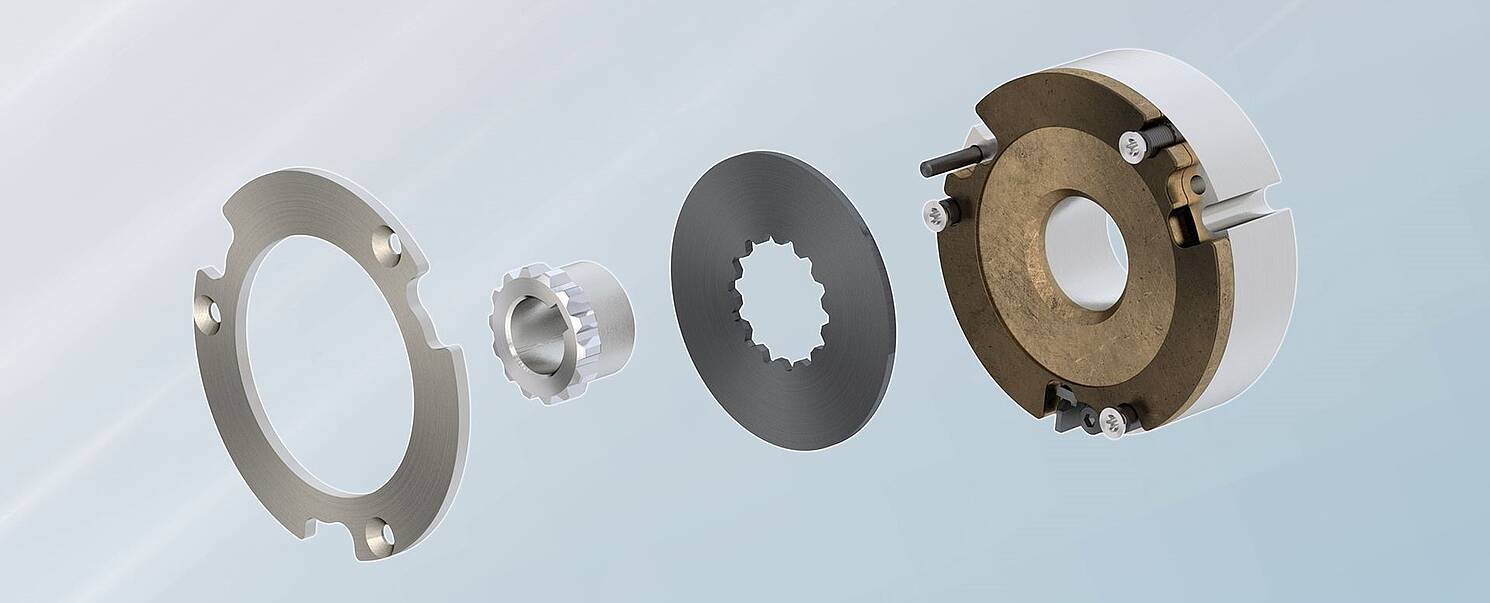The brake that makes you independent of rare earths
Patented friction system as an alternative to permanent magnets
When industrial research and the requirements of servo motor manufacturers come together, real innovations are born. One example is a spring-applied brake from KEB Automation that is attracting attention for several reasons. The brake with its patented friction system can compete with permanent magnet brakes in terms of performance, but does not require any rare earths as raw materials. Why this aspect is currently more relevant than ever.

Rare earths are one of the most important components of permanent magnets and are therefore also essential for permanent magnet brakes. With their compact dimensions and high performance, models such as the COMBIPERM P2 set standards in areas such as medical technology and servo motors. Geopolitical changes and the associated restrictions on the export of rare earths mean that impacts on availability and delivery times cannot be ruled out. So what can be done if brakes with the properties of permanent magnet brakes are still required?
No need to worry, says Thorsten Nolte, Sales Engineer for Brakes and Clutches at KEB: “We offer our customers a spring-applied brake that has comparable performance to a permanent magnet brake – and is completely independent of rare earths.” What makes the brake unique is a patented friction system that works without permanent magnets. Like the entire brake, the friction system is ‘Made in Germany’ and was developed at the company’s headquarters in Barntrup. It delivers more torque and more emergency stops, ensuring a high level of safety in use. Last but not least, the friction system reduces fine dust emissions to virtually zero and ensures torque stability in use across all temperature ranges.
Innovation for servo motors
The patented friction system makes the spring-applied brake a truly high-performance holding brake. The principle behind the innovative system is based on the friction generated between the friction disc, armature and flange, whereby the kinetic energy is converted into heat and the movement is stopped. “The friction system enables a torque range from 0.5 Nm to 60 Nm. This provides ideal conditions for applications with increased safety requirements,” says Nolte. The system is optimised for use in servo motors, as high performance can be achieved here with limited installation space. However, it is also used in automated guided vehicles (AGVs) or in robotics as a customer-specific variant.
When it comes to bringing reliability and predictability to its own production processes, it is worth taking a closer look at the spring-applied brake. This is because its production does not depend on the availability of materials such as rare earths. ‘It's a win-win situation,’ says Nolte. “If we at KEB receive an estimate of the user's brake requirements as far in advance as possible, we can take any customisation requests into account as best as possible and plan production accordingly. And thanks to our high vertical range of manufacture and material independence, we can offer our customers optimised brake availability.”
Rare earths and brakes: Take a deeper dive into the topic here
